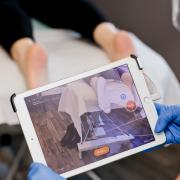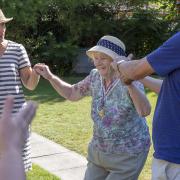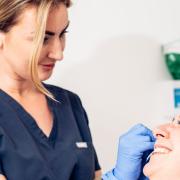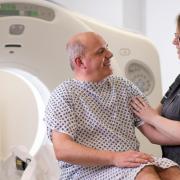In a social media obsessed world driven by Instagram filters and ‘perfect’ selfies, have we normalised unrealistic beauty expectations?
We speak to Kate Monteith-Ross, director and lead aesthetic nurse from La Ross Aesthetics in Kent, who talks about the importance of knowing when to stop with cosmetic treatments and how to choose a safe clinic.
Below, she shares three key things we should consider before getting a treatment.
1. Make sure you’re choosing a safe, ethical clinic
Kate explains how the most crucial part of being an aesthetic nurse is having the confidence and strength to say ‘no’ when it is necessary. “It's important to give your patients the correct advice and ensure their health and wellbeing is the priority,” she says.
“A client may want a certain look based on an influence in their lives or even a filter they are using on social media, and it may well be anatomically impossible to achieve it, so it is our responsibility to have that conversation. Unfortunately, there are now many clinics with inexperienced practitioners who will perform any treatment that is requested, regardless of training or whether it is safe or sensible for the patient.”
Kate advises having an initial consultation to help you make an informed decision about what treatment is right for you. "All parties involved need to be fully aware of the risks in order to work together both pre- and post-treatment to achieve the best, safest outcome.”

2. Assess all options and have realistic expectations
“If you're considering getting filler, you should really give it some thought,” Kate says, “and that applies to those who already have dermal filler too. From Botox to lip fillers, rhinoplasty to breast implants, it can be so easy to get carried away with cosmetic treatments and plastic surgery - but remember they are designed to enhance your features, not to completely change them.”
Over the last year, La Ross Aesthetics has seen nearly a 40 per cent increase in correctional work. Kate says this is mainly because people are unaware of the risks and are being tempted by cheap offers sold as ‘lunch time’ treatments.
“We have many clients coming into the clinic requesting a 'new face’ and it’s really damaging,” she explains. “We love the way everyone looks, and you should too - individuality is something to celebrate. My advice is to understand the reasoning behind why you’re getting filler. These treatments can achieve incredible results and absolutely have a place, but they won’t change your perception of yourself.”
Kate recommends considering non-surgical treatments, too. “Sometimes, the desired results of reducing wrinkles, fine lines and signs of ageing can be achieved through natural procedures using facials, good nutrition, supplementation and a targeted skincare routine,” she says.

3. Know that it's okay to ask for help
“We are fully aware that a large percentage of our clients suffer with body dysmorphia or self-confidence issues,” Kate says. “These vulnerable individuals are sometimes misguided into believing that a treatment will help solve these issues. We have a qualified counsellor who works at the clinic twice a week, so there is always support available for our clients. There are also leaflets in the clinic on other places you can visit for free, independent access to support.”
All the staff at La Ross Aesthetics are trained in mental health awareness and body dysmorphia. The clinic also runs a free mental-health workshop for any aesthetics nurses and practitioners from other clinics, where they can get advice on clinical supervision and how to best support their patients. “It’s about supporting each other and working together for our clients to improve the safety of the industry and ensure above all our patients come first,” Kate says.
For more information on the La Ross Aesthetics clinic, visit larossaesthetics.com. To speak to the team, contact 01634 710146 or info@larossaesthetics.com.
You can find the clinic at Unit 10a, Centre Court, Rochester, ME2 4BQ.




























